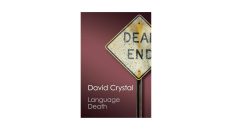“Man is nothing else but what he makes of himself.”(Jean-Paul Sartre)
“I am a part of all that I have met.”
(Alfred Lord Tennyson)
In every Baloch child taught to speak, read, and write their mother tongue, there lies a seed of preservation. That seed grows into identity. As a Baloch, I have always been told to read and write in Balochi: “own your language, your history, your stories.” And this, indeed, is essential. But as I moved deeper into literature, I realized that understanding only the self may lead to intellectual isolation. To strengthen our own house, we must sometimes walk through others’ not to adopt their walls, but to learn their architecture.
For every Baloch, knowing Qazi, Muneer Momin, Nisar, Sayad Zahoor Shah Hashmi, Atta Shad, A.R. Daad, Maulabaksh Dil, Beebagr, or Zubair Mukhtar is not only vital; it is a literary and moral obligation. But it is equally vital to know Sartre, Camus, Victor Hugo, Baudelaire, Goethe, Kafka, or Cervantes. These writers, though not Baloch, have struggled with questions that all human beings face: meaning, identity, justice, power, and freedom. In doing so, they offer a mirror not just to the world, but to ourselves.
The purpose of reading these masters is not to replace the soul of Balochi literature but to structure it with new clarity, to give it a literary architecture as resonant and versatile as the themes it carries. When we read writers like Sartre, Goethe, Kafka, or Cervantes, we do not lose ourselves, we gain perspective on how a single thought can be built into a cathedral of meaning. We begin to see the shape of a well-formed essay, the cadence of a timeless poem, the power of metaphor that crosses cultures.
Balochi literature, with its strong oral traditions and deep emotional reservoirs, already contains the raw material of greatness. But through engaging with global literature, we begin to find language for silence, form for memory, and technique for instinct. This is not dilution; it is refinement. A marriage of minds, a multi-alliance of voices speaking across time and geography, across era and space, across identify and knowledge, across perspective and logic, across different age and different century.
William Shakespeare, the master of human contradiction, gave the world not just stories, but ways of thinking. His tragedies, comedies, and histories were all grounded in language that explored love, ambition, betrayal, and wonder, elements that live equally within Balochi poetry. When we study how Shakespeare used metaphor to peel back layers of human nature, or how he structured acts and dialogue to hold tension and release, we begin to ask new questions of our own stories: how can we give voice to emotional depth in Balochi with such amazing ecstatic structure? How do we capture the storm within the stillness? How do we identify our Shakespeare?
“Give sorrow words; the grief that does not speak knits up the o’er-wrought heart and bids it breaks.”(Shakespeare, Macbeth)
This is what structure can do, not replace grief, but give it a container in which it can be shared, shaped, and remembered. That is what writers like Ragaam Baloch, Daad and Zubair Mukhtar attempted, not mimicry, but mastery of craft, drawn from conversation with the world.
The same is true for Kahlil Gibran, whose simplicity and philosophy in his own literature echoed when Gibran wrote:
“Your children are not your children. They are the sons and daughters of Life’s longing for itself.”
This deeply human view of continuity, belonging, and generational identity connects beautifully with the Balochi ethos, where ancestry and future are always in dialogue. The Baloch youth, in this way, can find themselves both in Gibran’s lyrical philosophy and in Zahoor Shah Hashmi’s grammatical and scholarly teachings. There is no contradiction, only expansion. And that is what true knowledge is. To evolve!
By placing Balochi literature in conversation with world literature, I mean to offer young Baloch readers a literary inheritance that is both native and global, familiar and exploratory and known to all. I invite them not only to speak Balochi, but to speak through Balochi in ways that resonate with readers in Cairo, Paris, Germany or New York. This is not a transformation of identity, but a transformation through identity.
“A writer is a world trapped in a person.”
(Victor Hugo)
When that world learns to build bridges with others, Shakespeare’s stage, Baudelaire’s sky, Goethe’s mind, it does not disappear. It shines more clearly with its structure standing tall, and with its pride higher.
Balochi literature does not need to be defended; it needs to be extended. And the minds of the youth, when exposed to both Atta Shad’s rain and Camus’ clarity, will not be confused. They willbe sharpened, inspired, and empowered to create a literature that is at once deeply rooted and widely reaching.








Add comment